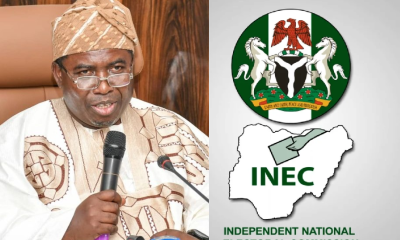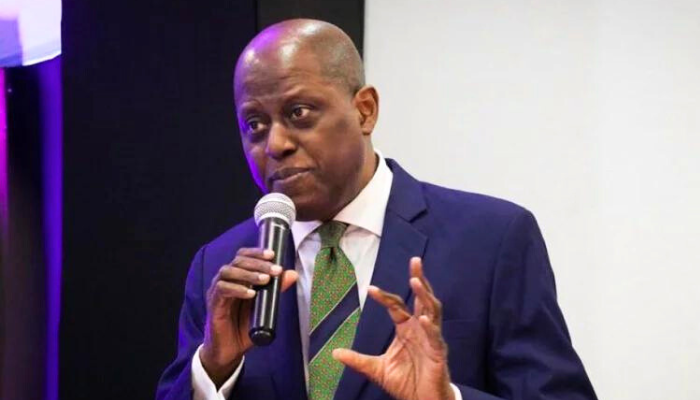The Governor of the Central Bank of Nigeria (CBN), Olayemi Cardoso, has reaffirmed the apex bank’s commitment to leveraging digitalization and technology-driven solutions to enhance financial access, particularly for underserved communities and women.
Speaking at the Inaugural Economic Policy Conference for Emerging Market Economies in Riyadh, Saudi Arabia, Cardoso emphasized the transformative role of mobile money services and digital financial tools in expanding financial inclusion across Nigeria.
The event, organized by the Ministry of Finance, Saudi Arabia, and the International Monetary Fund (IMF) Regional Office, brought together global policymakers to discuss economic strategies for emerging economies.
In a post shared on CBN’s official X (formerly Twitter) account on Monday, Cardoso stated:
“Digitalization is key to Nigeria’s financial inclusion efforts! With mobile money services and tech-driven solutions, the CBN aims to expand financial access for underserved communities, particularly women.”
The CBN governor highlighted the importance of integrating financial technology (FinTech) into Nigeria’s banking landscape, ensuring that individuals in rural and low-income communities can seamlessly access banking services.
READ ALSO: Naira strengthens as CBN’s forex policy boosts investor confidence–BDC operators
Industry experts have long argued that limited access to financial services remains a major constraint to economic growth in Nigeria. While the country has seen a rise in digital banking, millions remain unbanked, especially in remote areas. The CBN’s renewed focus on digitalization aims to close this gap.
Beyond financial inclusion, Cardoso also discussed the ongoing recapitalization exercise within the banking sector, stressing its importance in enhancing financial resilience.
“CBN’s recapitalization mandate is strengthening Nigeria’s financial sector, ensuring banks are well-equipped to handle future shocks,” he stated.
The recapitalization directive, announced earlier this year, requires Nigerian banks to increase their capital base to mitigate systemic risks and improve their ability to support economic growth. This move, according to financial analysts, aligns with global best practices aimed at reinforcing banking sector stability and investor confidence.
Cardoso acknowledged that while Nigeria has implemented tough economic policies, the impact is beginning to reflect in key economic indicators.
“Nigeria’s tough but necessary policy decisions are paying off,” he noted.
Cardoso’s statements also align with earlier remarks made by CBN Deputy Director of Corporate Services, Mr. Bala Bello, before the House of Representatives Ad-hoc Committee in January 2025.
Bello had defended the disengagement of 1,000 CBN staff, linking the move to the global shift towards digitalization.
“The entire world is going through a process of digitizing its operations. A lot of opportunities are created, just as redundancies are also equally created. The central bank is not necessarily the first organization to have done that,” Bello stated.
This shift underscores the CBN’s broader push toward technology-driven banking services, which, while enhancing efficiency, also comes with workforce restructuring challenges.
.

 Featured1 week ago
Featured1 week ago
 News6 days ago
News6 days ago
 Agribusiness6 days ago
Agribusiness6 days ago
 News6 days ago
News6 days ago
 Education1 week ago
Education1 week ago
 Latest1 week ago
Latest1 week ago
 Football1 week ago
Football1 week ago
 Health1 week ago
Health1 week ago

